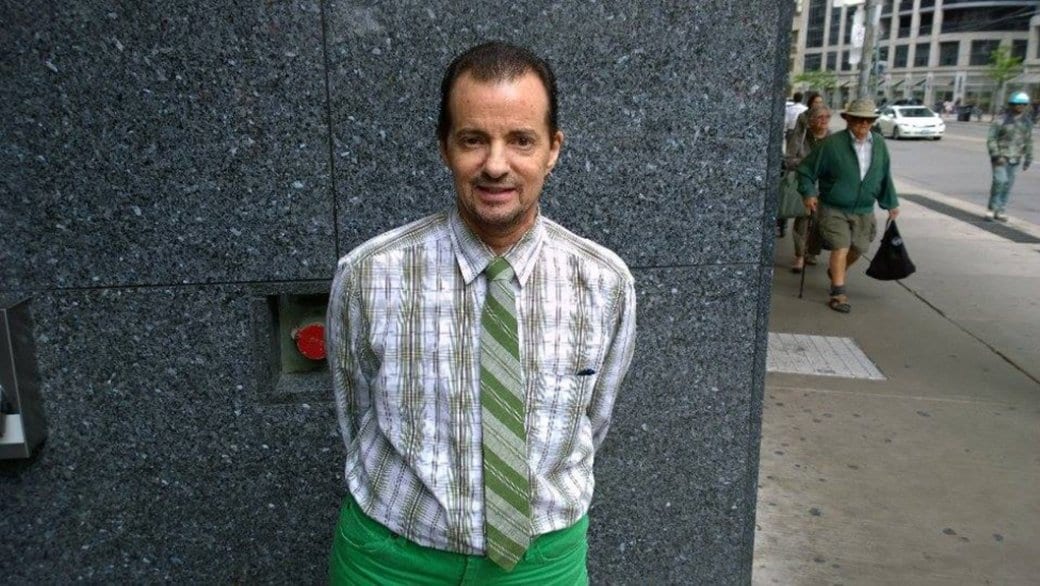When Boyd Kodak was arrested in 2012 after being accused of harassment by a former business partner, he was placed in a women’s prison. He was forced to wear women’s underwear and uniforms. He also had his prosthetic private parts confiscated, but not before they were passed around the room in front of him.
If his women’s uniform hadn’t already outed him as transsexual (the term he identifies with), his deep voice and the lack of privacy didn’t help. He was put in a cell in front of the officer’s break area where he says he felt like a “monkey on display.”
His trial date then took place in a public courtroom where he says he faced transphobic jeers (based on his uniform) from fellow inmates and police officials. When it was time for his discharge, he was released without his wallet, money, clothes or a coat, with only his women’s prison clothes. Luckily, his cousin was able to pick him up and reunite him with his belongings.

On June 2, 2016, Kodak finalized a landmark settlement, which includes concrete plans to alter the Toronto Police Service’s procedures when interacting with members of the trans community. According to the settlement, the guidelines must be created with input from the trans community. Kodak says he will be leading and selecting the members of that group. “I’m looking for people with experience. I want [the police] to really hear what’s really happening. This is not gonna be just a nice patch-up,” he says.
Prior to his arrest, Kodak had jumped through all the hoops that purportedly insulate trans people from discrimination. Passing, gender-confirmation surgery and ID changes did not help him. “All my ID is male. It’s quite clear looking at me, listening to me, looking at my identification, there’s no question whatsoever that I’m male.” The police policy at the time stated that if an inmate had undergone gender-confirmation surgery, they were to be considered whichever sex they had conformed to. His resolve to take action came in his cell. “I thought, ‘I won’t just let it go. I will have to do something about this. This can never happen to somebody else.’”
The effects of this episode on Kodak are extensive. After the 2012 incident, Toronto’s Centre for Addiction and Mental Health diagnosed him with post-traumatic stress disorder, depression and anxiety. “I wake up in a panic every two hours like clockwork,” he says. “I was held for long periods of time without food. I wake up and I’ve got food in my mouth. I’m so lucky I haven’t choked to death.”
Kodak describes the traumatic experience of having his prostheses confiscated: “To me, it’s not a possession. It’s not an object to be kept with my clothes. It’s a part of my body. If you had a prosthetic leg would they make you drag yourself around?”
He says the way officers handled his prostheses amounted to sexual harassment, and charged them accordingly. He dropped the charges as part of his settlement agreement. “I can’t tell you what this has done to my life. This might be over for [the police] at the end of the tribunal, but it’s not over for me. It’s never over for me. It’s always gonna be in my mind,” Kodak says.
A quick look at any comment section on an article about Kodak, victims of police brutality against people of colour or others who have been treated unfairly by the justice system will reveal two common opinions: the idea that if these people hadn’t broken the law in the first place they wouldn’t have opened themselves up to abuse, and the assertion that people who break the law forfeit their dignity.
The harassment charges against Kodak were determined to be unwarranted and were dropped. “Just because somebody is charged and arrested doesn’t mean they’re convicted. During the period until someone is convicted, you’re still dealing with an innocent person. We’re supposed to be a civilized country,” he says. He says that convicted criminals who are serving their time also deserve dignity. “You can get put in jail for parking tickets. Does that mean you should be abused?”
Kodak was set on taking his prison complaint to a tribunal, but agreed to settle in mediation because the tribunal process would have taken years and he wanted results for the community in the short term. The Toronto Police and the Ontario Human Rights Commission have two weeks to establish a plan to write the guidelines together over 12 to 18 months. The new rules will be named after Kodak. “Every single time they see a trans person, they’re never gonna forget this,” he says.

 Why you can trust Xtra
Why you can trust Xtra


